March 19th 2024
By Jason Swope
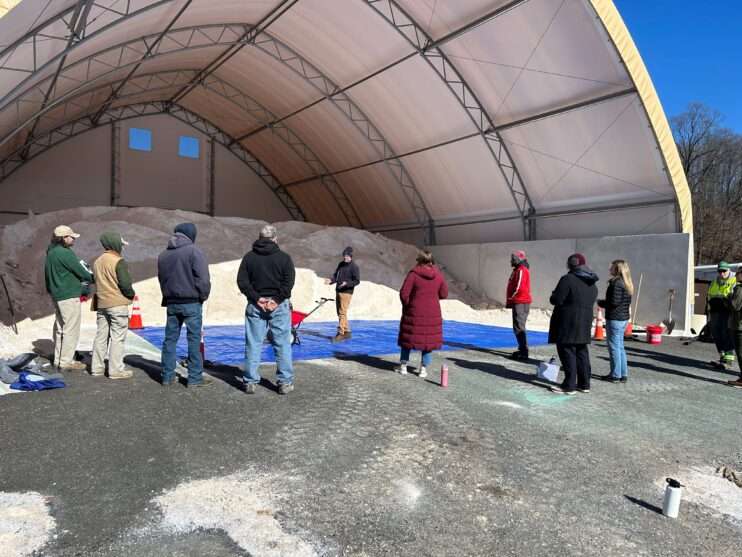
PH: Natalia Sanchez
One of the most interesting aspects of landscape maintenance is that there is always something more to learn, and I think this is truer today than when I first started in the industry thirty years ago. Conservation landscaping and green stormwater infrastructure wasn’t something that I was learning about at the garden center where I started. The public wasn’t demanding native plants and long-standing maintenance practices involving fertilizers and pesticides were prevalent. Business was good and – generally speaking – we didn’t know what we didn’t know as it related to the impact of our individual landscaping practices on the environment.
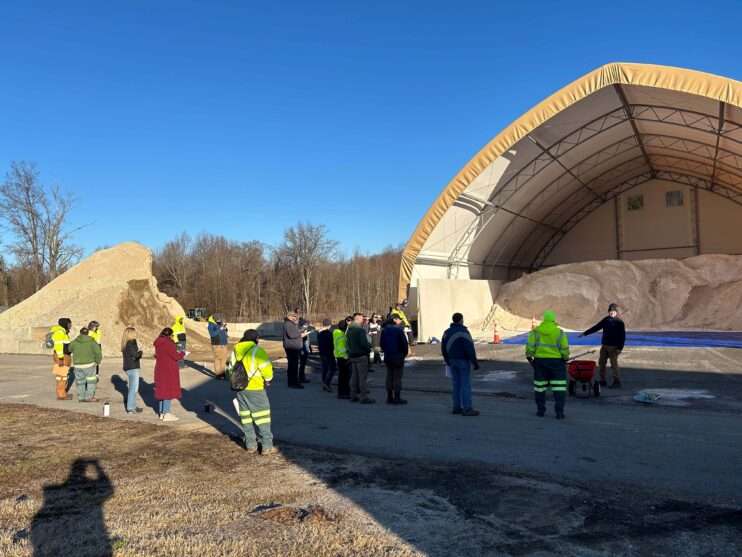
PH: Natalia Sanchez
Over time, the awareness of the impact of our actions in the landscape has grown. Regulations regarding fertilizer and pesticide usage have become more stringent, and the landscape industry is undergoing a shift from conventional landscaping practices to more conservational practices.
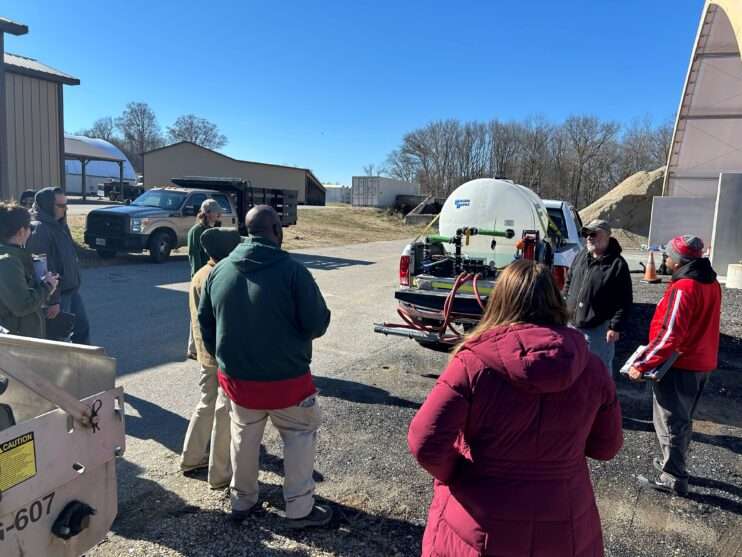
Salt training group with a brine truck. PH: Natalia Sanchez
For businesses, this shift can come with a cost. The economics of change can be a major driving force in whether individuals and companies embrace sustainability. Often it is easier to not know what you don’t want to know instead of facing the challenges of changing practices.
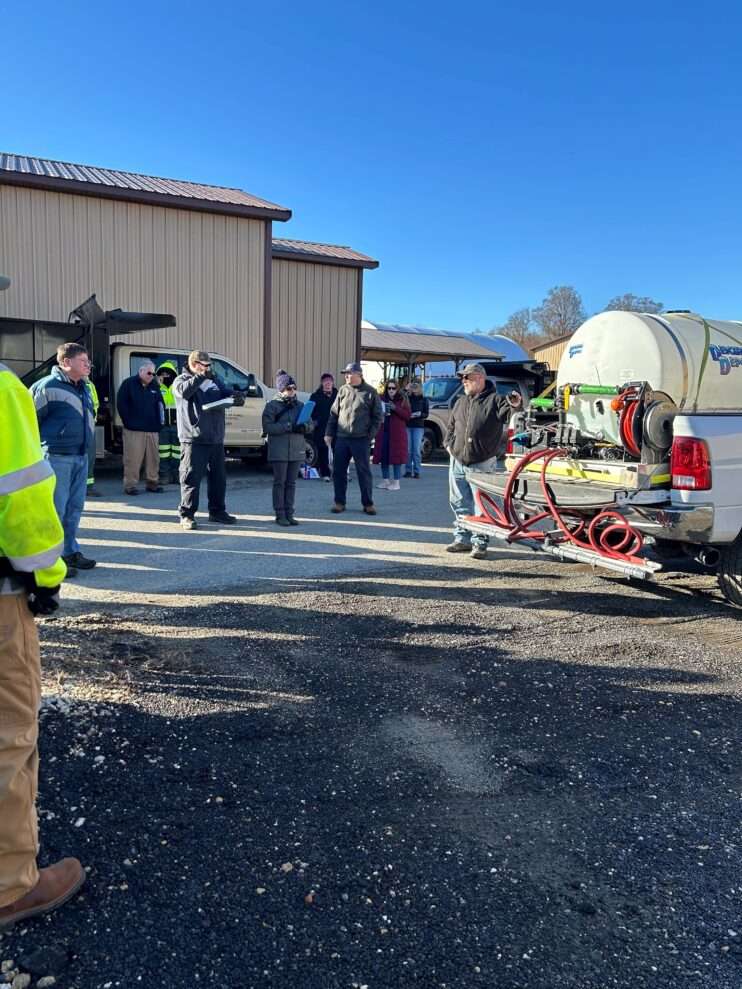
Salt training group with a brine truck. PH: Natalia Sanchez
In recent years, this intersection of cost, practice, and sustainability has been brought into greater focus with the increased awareness about the harmful effects that chlorides and ice melters have on the environment. Once again, there is more for industry professionals to learn. A recent survey of contractors involved with winter maintenance showed that applications of ice melters were as much as 10 times more than the recommended application rates.
In Maryland, one effort that the Chesapeake Bay Landscape Professional (CBLP) program has been involved with is a winter maintenance training and certification program developed by the Maryland Department of the Environment (MDE) “Smart Salting Enhanced Winter Maintenance Training” was rolled out as a pilot training program to 40 industry professionals involved with applying ice melting materials on private properties.
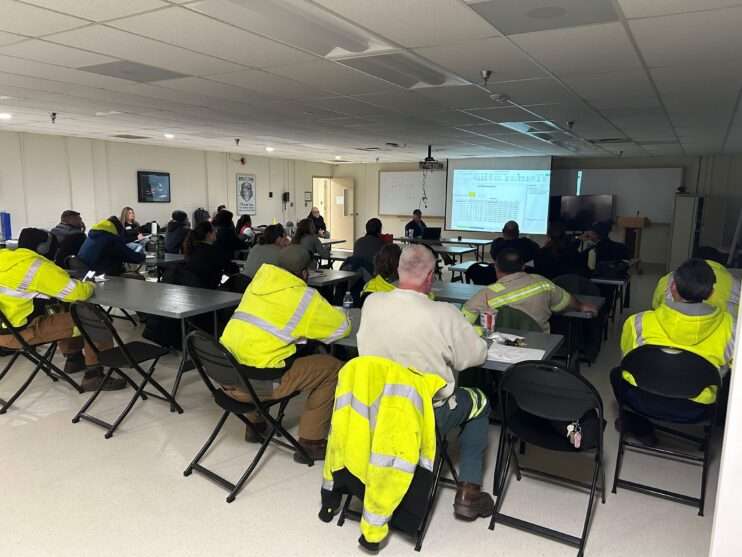
Salt training group in the classroom. PH: Natalia Sanchez
CBLP staff partnered with MDE and the University of Maryland Environmental Finance Center (EFC) to develop and deliver on-line learning modules and discussion forums based on MDE’s Enhanced Winter Maintenance Training Manual.. The training also included a hands-on field day in which we taught participants how to calibrate several different types of ice melter application equipment. Other important topics covered in the Smart Salting training include site plans, application charts, contract specifications, and adaptive management.
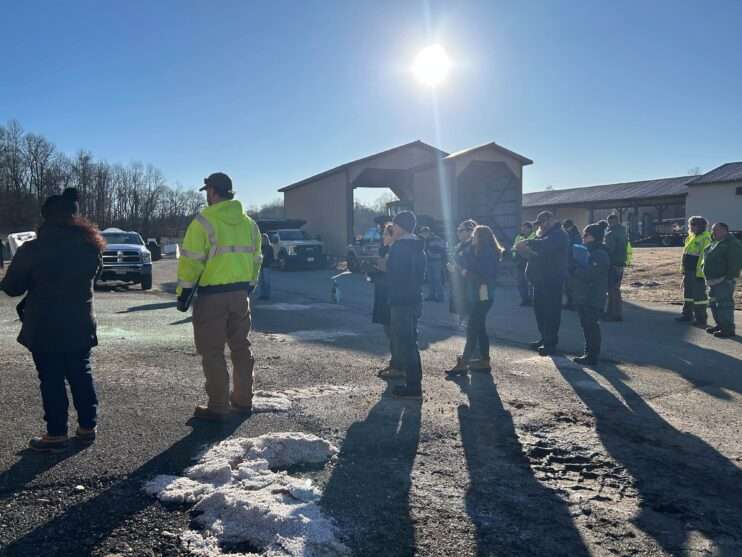
Salt training group collecting data. PH: Natalia Sanchez
Learning about the correct use of ice melters is an important step that our industry will need to take as we continue to shift to more sustainable practices. Contractors and landscape professionals will play a key role conveying Smart Salting practices to clients, as well as implementing proper application practices in the field. Contractors will also need to have a better understanding of how to price their work so that over-applications are not incentivized. The MDE Smart Salting Training is a great step in the right direction to make this happen. We hope to continue our partnership with MDE and EFC for the upcoming 2024-2025 training season and look forward to seeing more CBLP-certified pros involved with the program in the future.
 Jason is the MD, DC, WV Coordinator for the Chesapeake Bay Landscape Professional program where he works to promote and grow the CBLP program by engaging with professionals across all segments of the stormwater, green infrastructure, and landscaping industry. He is a graduate of the Science program at the Hagerstown Community College, a level 2 certified CBLP and a CBLP-Crews instructor.
Jason is the MD, DC, WV Coordinator for the Chesapeake Bay Landscape Professional program where he works to promote and grow the CBLP program by engaging with professionals across all segments of the stormwater, green infrastructure, and landscaping industry. He is a graduate of the Science program at the Hagerstown Community College, a level 2 certified CBLP and a CBLP-Crews instructor.
Before joining the CBLP team, Jason worked as a landscape contractor for over 25 years. During this time, he developed an understanding of how our landscaping practices relate to the health and resiliency of the environment. This understanding compelled Jason to transition from conventional landscaping practices to conservational practices, and he leverages that experience when assisting the CBLP team with various training programs throughout the year.


